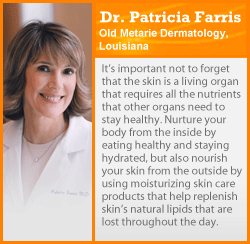You welcome sensitivity in your family and friends, but when it shows up in your skin, the trait isn't appreciated. If your skin gets easily flushed, itchy or inflamed when exposed to cosmetics or environmental factors like cold weather, the sun or pollution, you may have sensitive skin [source: Scirrotto].
However, many people who think they have sensitive skin may simply be allergic to ingredients in their skin care products [source: Zamosky]. They may also just have skin that's too dry or injured to protect nerve endings, which causes skin to react adversely to cosmetics or environmental factors. Aging can also increase skin's sensitivity, especially when the humidity level drops, but simply using different skin care products or moisturizing regularly may prevent these symptoms [source: WebMD].
Advertisement
Only a dermatologist can determine if your sensitive skin is a reaction to cosmetics or an indication of a more serious condition, such as rosacea or eczema. These diseases are sometimes confused with sensitive skin, but they're actually chronic skin conditions that cause itching and inflammation.
If your skin seems unusually sensitive, you can help relieve your symptoms by avoiding harsh cleansers, moisturizing regularly and using cosmetics with fewer and gentler ingredients [source: WebMD]. Be sure to read the ingredient labels on each skin care product you buy, and don't rely on manufacturers' claims that a product is hypoallergenic -- the U.S. Food and Drug Administration doesn't regulate the validity of these claims.
Whether you have a skin condition or an allergy to certain cosmetic ingredients, you can avoid redness, dryness and other issues associated with sensitive skin. Keep reading to learn what causes these problems.
Advertisement


